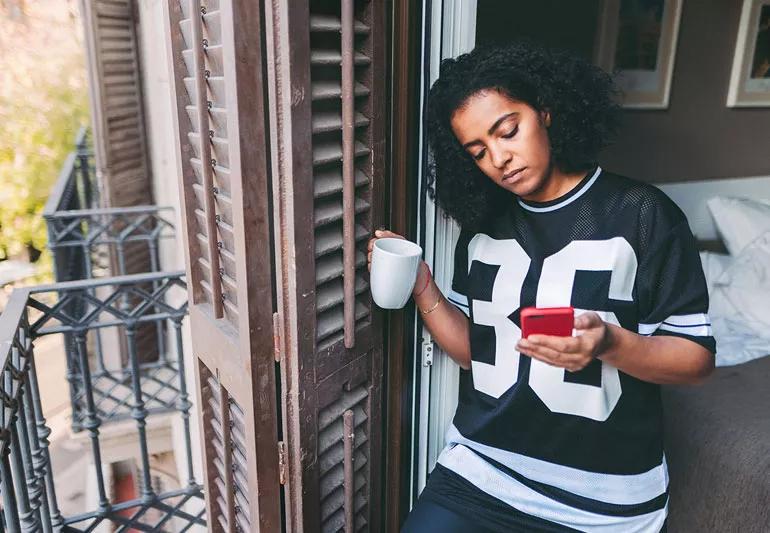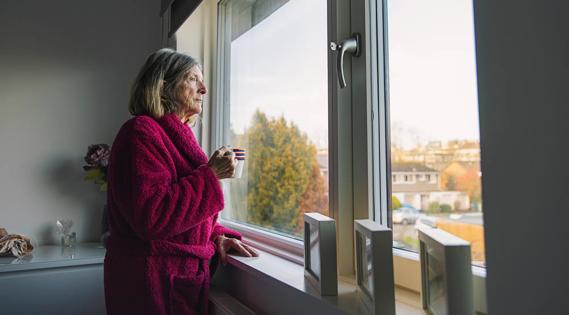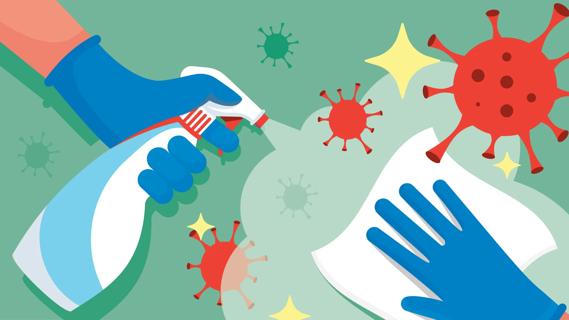Advertisement
The short answer from a pulmonologist

A: Well, it’s possible but very unlikely. A recent study showed that the virus could live on porous surfaces for about a day. But depending on the object and the circumstances, for example, temperature and how dry or humid the area is, the virus may not even survive for that long. As far as I know, there have been no reported cases of people acquiring coronavirus from touching contaminated surfaces. The major way to acquire this kind of infection is by inhaling infected droplets that are in the air.
Advertisement
Cleveland Clinic is a non-profit academic medical center. Advertising on our site helps support our mission. We do not endorse non-Cleveland Clinic products or services. Policy
We also know the average time that it takes for someone to develop coronavirus symptoms is about two weeks after exposure. In some cases, the timeframe might be longer than two weeks. That would be one way that someone could develop symptoms during the isolation period. But with no exposure, it’s very unlikely that someone will get the infection while being isolated, meaning they won’t just get it from the air in their home.
Regarding the reported cases of people getting the virus while sheltering in place in New York City, my interpretation is not that isolation is not working. It is unlikely that someone will acquire the coronavirus without any contact with someone who carries the virus.
Most cases seem to be occurring in confined locations, mostly from home. The other common origin points for cases are nursing homes and assisted living facilities. The fact that the coronavirus is affecting mostly older people suggests that the most vulnerable population for developing symptomatic infection is the one that requires visitation and some form of in-person assistance. This highlights the possibility of the virus being transmitted from asymptomatic carriers. It also reinforces the importance of everyone taking social distancing and hygiene precautions.
Advertisement
— Pulmonologist Humberto Choi, MD
Advertisement
Learn more about our editorial process.
Advertisement

Studies have shown promising results, but additional research is needed

Infection and inflammation can cause you to lose your voice and have other voice changes until you’re fully healed

A COVID-19 infection can bring on depression or anxiety months after physical symptoms go away

Just like the flu, COVID-19 continues to evolve every year with new and smarter variants

The latest omicron subvariants carry specific mutations that may allow the SARS-CoV-2 virus to be better at evading immune protection

You can work out with mild COVID-19, but not in a gym, and listen to your body and don’t overdo it

Most people can return to work and regular life when they’re symptom-free for 24 hours

Lysol Disinfecting Wipes are just one of more than 500 products approved by the EPA for protection against the SARS-CoV-2 virus that causes COVID-19

If you’re feeling short of breath, sleep can be tough — propping yourself up or sleeping on your side may help

If you fear the unknown or find yourself needing reassurance often, you may identify with this attachment style

If you’re looking to boost your gut health, it’s better to get fiber from whole foods